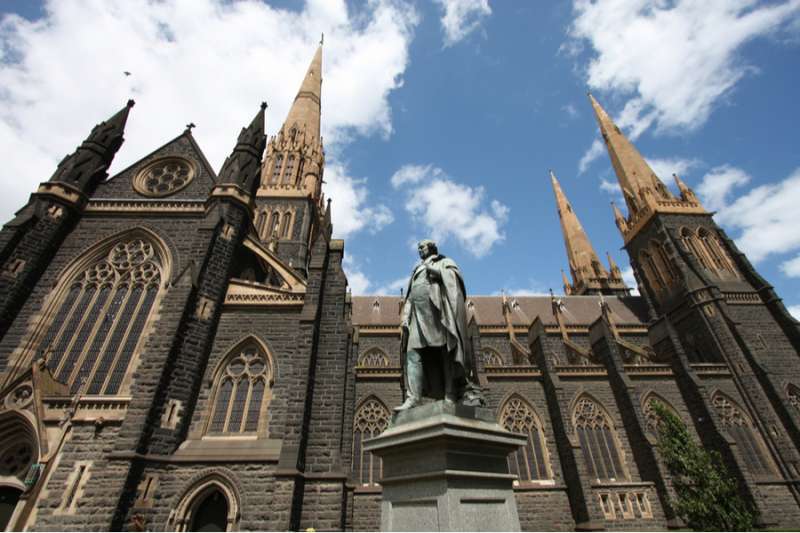The Archbishop of Melbourne has said he is prepared to defy a proposed new law that would force priests in the Australian state of Victoria to violate the seal of confession.
The proposed legislation would include priests in mandatory reporting laws in cases of child sexual abuse, without any priest-penitent exceptions.
“Personally, I’ll keep the seal,” said Archbishop Peter Comensoli during an August 14 interview with ABC Radio Melbourne.
The archbishop said that the seal of confession and the concept of mandatory reporting were “mutually exclusive,” and that he would urge anyone who confessed to abuse to report themselves to the police.
Comensoli said he would also encourage the person who confessed to abuse to repeat the admission again outside of the context of confession, where the seal would not apply and he would be free to report the abuser to the police.
The law was introduced in the Victorian parliament August 14. It would add religious leaders to the list of mandatory reporters of child abuse. This list of mandatory reporters currently includes teachers, police, medical practitioners, nurses, school counselors, early childhood workers, and youth justice workers. Confession would not be exempt.
In 2017, the Royal Commission into Institutional Responses to Child Sexual Abuse called for the abolition of the seal of confession as one of the 85 suggested changes to further prevent child abuse.
“Confession in the Catholic Church is a spiritual encounter with God through the priest,” then-Archbishop Denis J. Hart of Melbourne said in an August 2017 statement in response to the recommendation.
Hart, who was the president of the Australian Bishops Conference at the time, said confession “is a fundamental part of the freedom of religion, and it is recognized in the law of Australia and many other countries.”
“It must remain so here in Australia,” he said, and added that “outside of this, all offenses against children must be reported to the authorities, and we are absolutely committed to doing so,” said Hart.
In 2004, Australian priest Fr. Michael McCardle wrote in a sworn affidavit that he had confessed to the crime of child abuse 1,500 times to 30 priests over a 25-year period. McArdle said that he was instructed to “pray more.” He was eventually sentenced to six years in prison after being convicted of 60 abuse related charges.
McArdle’s crimes, and his repeated confessions to priests, have been cited by child protection advocates as justification for ending the sacramental seal.
Comensoli said Wednesday that confessions of sexual abuse in the confessional are “deeply rare” and that most confessions are made anonymously.
The archbishop said that other recommendations from the royal commission, such as supervision and ongoing training to recognize and prevent abuse, were “vastly more important” than calls to violate the sacramental seal.
“All of those sorts of things, I think, are much more about the protection of children and are better at it on a practical level than this one particular thing,” said Comensoli. “Yet this one particular thing has become nearly the all, and I think that’s a shame.”
Australia’s Constitution states that “The Commonwealth shall not make any law for establishing any religion, or for imposing any religious observance, or for prohibiting the free exercise of any religion, and no religious test shall be required as a qualification for any office or public trust under the Commonwealth.”
Efforts in other countries to compel clergy to violate the seal of confession have fallen short.
Last month, a California bill that would have required priests to violate the seal of confession has been withdrawn by its sponsor the day before it was to be debated in committee. Before the bill was withdrawn, several California bishops condemned the proposal.
Bishop Michael Barber, SJ, of Oakland said that “no priest may obey such a law,” and that he would “go to jail before I will obey this attack on our religious freedom.”

